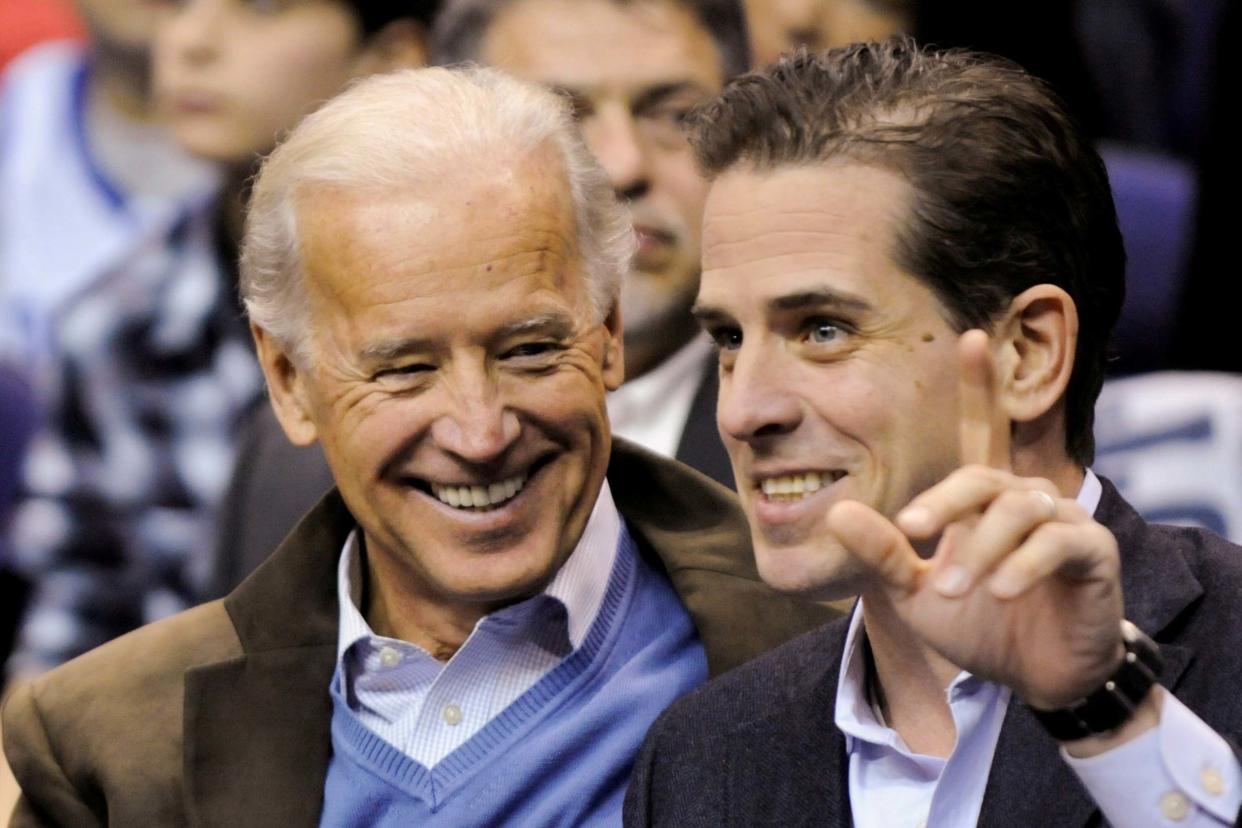Coronavirus and Hunter Biden: Congressional investigators prepare for war over 2020 election

As the coronavirus pandemic continues to rage across the United States, it has, for the moment, brought the partisan investigations taking shape on Capitol Hill that could swing the balance of the 2020 election to a screeching halt.
Lawmakers, scattered across the country in their home states and districts for the indefinite future, have the health and economic welfare of their constituents to attend to.
Absent a vote from his Senate Homeland Security Committee, Chairman Ron Johnson, a Wisconsin Republican, can’t issue a subpoena for Hunter Biden or any of his former associates at Ukrainian energy company Burisma Holdings.
In the House, Democratic chairmen and chairwomen can’t call administration officials to testify before empty hearing rooms about the government’s highly criticised response to the health crisis.
We are in the eye of the storm.
But chaos awaits.
When normal life resumes and lawmakers return, Capitol Hill oversight veterans are bracing for the partisan gusts to rage through Congress like they rarely have before, carrying us through the 2020 presidential election.
The groundwork is being laid. Or it already has, in the case of Senate Republicans’ probe into the foreign business dealings of Hunter Biden, son of 2020 Democratic frontrunner Joe Biden.
On 2 March, the day after the elder Biden’s landslide victory in the South Carolina primary that swung the momentum back in his favour to capture the Democratic nomination, Mr Johnson’s committee released a letter announcing his intention to begin subpoenaing documents related to the former vice president’s son.
'Subpoenas already written'
Coronavirus has rendered the Biden probe dormant for now, but it’s sure to rumble once the crisis abates.
“They have the subpoenas already written, I guarantee you. They’re just waiting to deliver them when it becomes politically appropriate for them,” said Kurt Bardella, a former senior Republican Oversight Committee aide and chief spokesman.
Meanwhile, House Democrats are preparing to blitz Mr Trump for not taking the threat of coronavirus seriously enough in the crucial early weeks of the budding pandemic.
In less than 36 hours hours this week, House Intelligence Chairman Adam Schiff revealed he is preparing legislation to establish an independent commission to investigate the US government’s response to the outbreak and subsequent pandemic; Speaker Nancy Pelosi announced a House select committee to oversee the coronavirus response; and scores of rank-and-file Democrats have called for spinoff hearings and committee investigations.
The imminent skirmish between the administration and the legislature over their respective branch’s constitutional prerogatives will be its own separate battle: Does anyone really anticipate the president will just quietly submit to the investigative onslaught?
Please.
"This is not the time for politics, endless partisan investigations. Here we go again,” Mr Trump said at his nightly coronavirus briefing Thursday after Ms Pelosi announced the select committee. “It’s a witch hunt after a witch hunt,” the president said.
Congressional majorities using their oversight powers to smear the party standard-bearer’s opponent has become the modus operandi on Capitol Hill.
Remember Hillary Clinton’s emails?
The former secretary of state’s private server was discovered by the House GOP-led House Select Committee on Benghazi over the course of its two-year probe and became a defining issue of the 2016 presidential campaign as new revelations splashed across the front pages of newspapers and dominated cable news chyrons.
Dirty work
Dirty work on behalf of presidential campaigns is nothing new for Congress, be it by Republicans or Democrats.
But with high-profile investigations into both presumptive candidates poised to explode when Congress returns from its coronavirus-imposed hiatus, the 2020 election will represent the culmination of a decades-long deterioration of Congress into a parliamentary hornets’ nest. It is no longer a co-equal branch of government, experts say.
“The president’s party in Congress is now an appendage of the executive branch … where they just protect their quarterback,” said retired Virginia Congressman Tom Davis, who chaired the House Oversight Committee from 2003 to 2007.
“The minority party no longer views themselves as the minority shareholder. They’re basically the opposition party. The only job of the minority now is to try and become the majority,” Mr Davis said.
Mr Bardella suggested there is little political downside for Senate Republicans teasing along their investigation into Hunter Biden or Democrats continuing to bludgeon Mr Trump over his response to the health crisis — even though both probes may appear toxic or emotionally raw to the outside observer.
The investigation into the Bidens stems from a widely debunked, Kremlin-supported conspiracy theory that it was Ukraine – not Russia — that perpetrated a wide-ranging misinformation campaign on the American electorate during the 2016 election cycle. The coronavirus pandemic is on track to be the most deadly non-wartime national emergency since the HIV/AIDS crisis.
Yet lawmakers will forge ahead, curating just the right plot lines to fire up their respective bases: Biden is corrupt. Trump is incompetent.
It doesn’t matter who’s cynical and who’s trying to conduct sincere oversight.
“Each side is living in their own reality bubble,” Mr Davis said. “One side will see the Wall Street Journal and Fox News and the [conservative] blogs. And the other side will be reading the New York Times and [watching] MSNBC. They’re completely different narratives.”
What will matter, come 3 November 2020, is which narrative more Americans believe.
Read more
How to test if you've lost your sense of smell
Pelosi: Small business aid could delay coronavirus infrastructure deal
More than 500 die of coronavirus in New York overnight
Premier League to donate £20m to NHS amid coronavirus crisis

 Yahoo News
Yahoo News 
